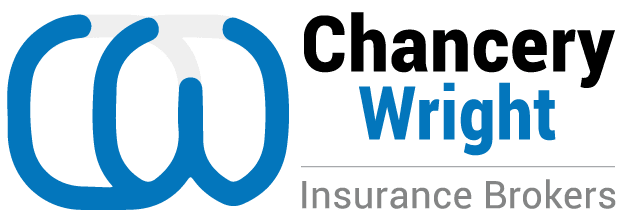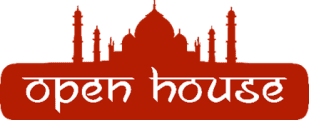
3. What are the benefits of switching from manual methods to ERP systems for theaters and performing arts groups?
What is a Theaters and performing arts groups ERP System?
Enterprise Resource Planning (ERP) systems are integrated pieces of software that helps businesses of all sizes to bring together different aspects of operations such as finance, customer relationship management (CRM), accounting, inventory, and other areas into one centralized system. For theatres and performing arts groups, an ERP system is essential for keeping all the data connected, in order to ensure that the working process of the group is organized and streamlined. ERP systems help theatre and performing arts groups to manage people, budget, show production, as well as marketing and public relations.
Why You Need Theaters and performing arts groups ERP System?
A Theaters and performing arts groups ERP system can help you manage your operations more efficiently, saving time and money, and allowing for more creative use of resources. It can provide your organisation with better visibility of your operations, helping you to make decisions quickly and effectively. Additionally, an ERP system can be used to track and analyse the effectiveness of marketing and promotional campaigns, helping you to make data driven decisions. Finally, an ERP system can be used to help budget, plan and manage productions, with sophisticated features to manage contractual information and financial resources.
Top Theaters and performing arts groups ERP System Features to Look For
When looking for a ERP system for your theater and performing arts groups, it is important to consider the features that are important to you. The following are some of the key features that you should be looking for:
Reporting & Analytics:
A good ERP system should have a robust reporting and analytics function that allows you to track and analyse data from multiple aspects of your operations. It should also be able to generate custom reports that can help you make data-driven decisions.
Contract Management:
Contract management capabilities enable you to easily manage contracts with suppliers, cast and crew. The system should enable you to create, store and manage contracts, in addition to getting insights into upcoming contracts.
Budgeting & Cost Control:
The ERP system should enable you to create, store and manage budgets, as well as track and analyse financial data. In addition, the system should provide you with detailed insights into your financials, enabling you to better control costs and optimise your resources.
Production Management:
The ERP system should have features for production management such as resource management, rehearsal schedules, and show production tracking. This is to ensure that you have a centralised system to manage the organisation and execution of your shows.
Budgeting for Your Theaters and performing arts groups ERP System
When budgeting for a Theaters and performing arts groups ERP system, it is important to consider both the initial cost and the long-term costs. The initial cost typically depends on the number of users and the features that you require. Additionally, you should also consider the cost of implementation, training and ongoing support.
Steps to Find and Get Started With Your Theaters and performing arts groups ERP System
Once you have decided on the type of ERP system that you need and budgeted for it, you should then begin the process of finding and implementing the right ERP system. The following are some steps to help you get started:
- Identify Your Requirements: Identify the features that you need in your ERP system, and what you can live without.
- Research Different Vendors: Research the different vendors and their products to determine which one produces an ERP system that best meets your needs.
- Request Demo: Request a demo from the vendor so you can explore the system and make sure that it is suitable for your needs.
- Choose: Once you have found a suitable system, decide on the provider and move forward with the purchasing and implementation process.
- Testing: After the ERP system is purchased and setup, it is important to carry out thorough testing to ensure that it meets your organisation’s needs.
- Go Live: Once everything is tested and your staff is ready, you can move to the go-live phase of the project.
The Best 5 Theaters and performing arts groups ERP System on the Market
There are numerous ERP systems available on the market that are designed to meet the needs of theatres and performing arts groups, ensuring that you get the most out of your ERP system. The following are five of the best ERP systems available on the market:
- Odoo:
Odoo is an open source ERP system that includes features for managing customer relationship management (CRM), finance, and production. It has a simple and intuitive user interface, allowing you to quickly set up and configure the system. Additionally, Odoo offers a wide range of customization options, enabling you to tailor it to suit your specific needs. The main advantages of Odoo are its low cost and easy scalability. The main disadvantage is the lack of customer service. - NetSuite:
NetSuite is a cloud based ERP system that was designed to meet the needs of theatres and performing arts groups. It includes features for managing customer relationship management (CRM), finance, and production. It has a robust set of features and is highly customizable. The main advantage of NetSuite is its scalability, but it can be quite expensive. Additionally, the customer service can be lacking at times. - SAP:
SAP is a powerful enterprise ERP system designed to meet the needs of large organizations. It includes features for managing customer relationship management (CRM), finance, and production. The main advantage of SAP is its robust set of features, scalability, and excellent customer service. Unfortunately, it can be expensive and complex to implement. - Microsoft Dynamics 365:
Microsoft Dynamics 365 is an ERP system designed to meet the requirements of mid-sized businesses. It has comprehensive features for managing customer relationship management (CRM), finance, and production. The main advantages of Dynamics 365 are its affordability, scalability and excellent customer service. The main disadvantage is its lack of customization options. - Oracle Fusion:
Oracle Fusion is an ERP system designed to meet the requirements of large organizations. It includes features for managing customer relationship management (CRM), finance, and production. The main advantages of Oracle Fusion are its scalability and excellent customer service. However, it can be expensive and complex to implement.
Summarized Table of the ERP System and key features
| ERP System | Features |
|---|---|
| Odoo | Open source; Low cost; Easy scalability; Limited customer service. |
| NetSuite | Cloud based; Robust features; Highly customizable; Expensive; Limited customer service. |
| SAP | Powerful; Robust features; Scalable; Excellent customer service; Expensive; Complex to implement. |
| Microsoft Dynamics 365 | Affordable; Scalable; Excellent customer service; Limited customization options. |
| Oracle Fusion | Scalable; Excellent customer service; Expensive; Complex to implement. |
Conclusion
Theaters and performing arts groups today require sophisticated ERP systems in order to manage the different aspects of the theater operations. An ERP system

























